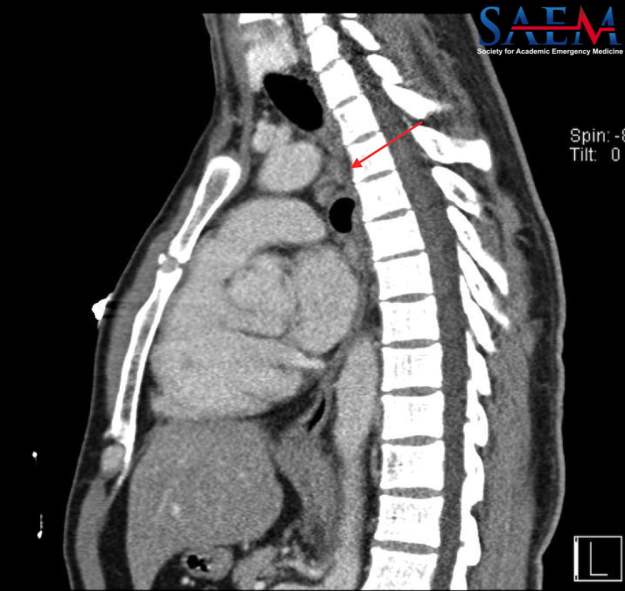History of Present Illness: A 43-year-old male presented to the emergency department with progressing pain upon swallowing. He described a sensation of food becoming stuck and creating a fullness in his chest. Review of symptoms was positive for dyspnea on exertion worsening over several months, but negative for cough, fevers, or weight change. He reported no medical history and had recently emigrated from Guatemala where he worked as a well digger.


Author information
The post SAEM Clinical Image Series: Dysphagia and Dyspnea in a Well Digger appeared first on ALiEM.


